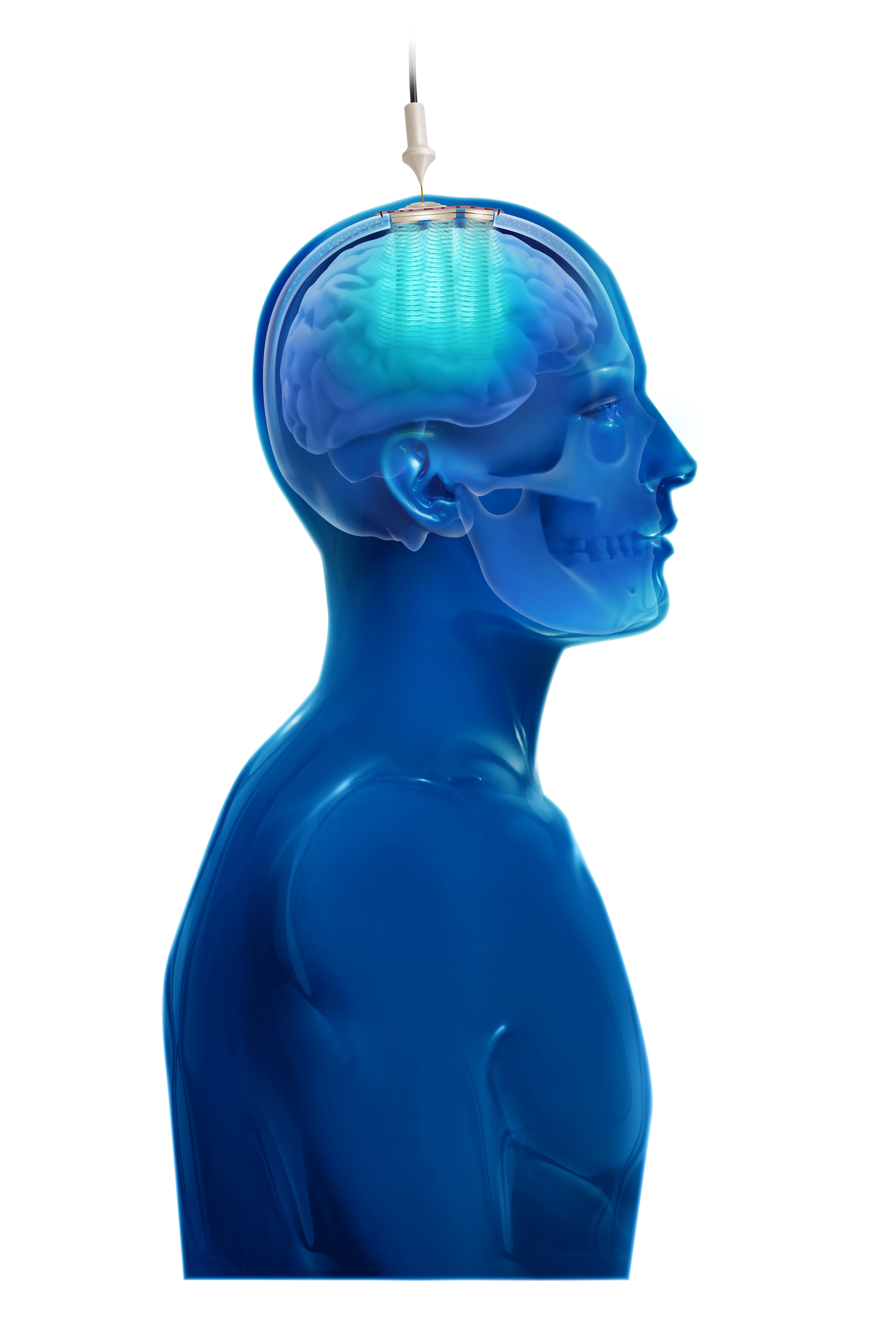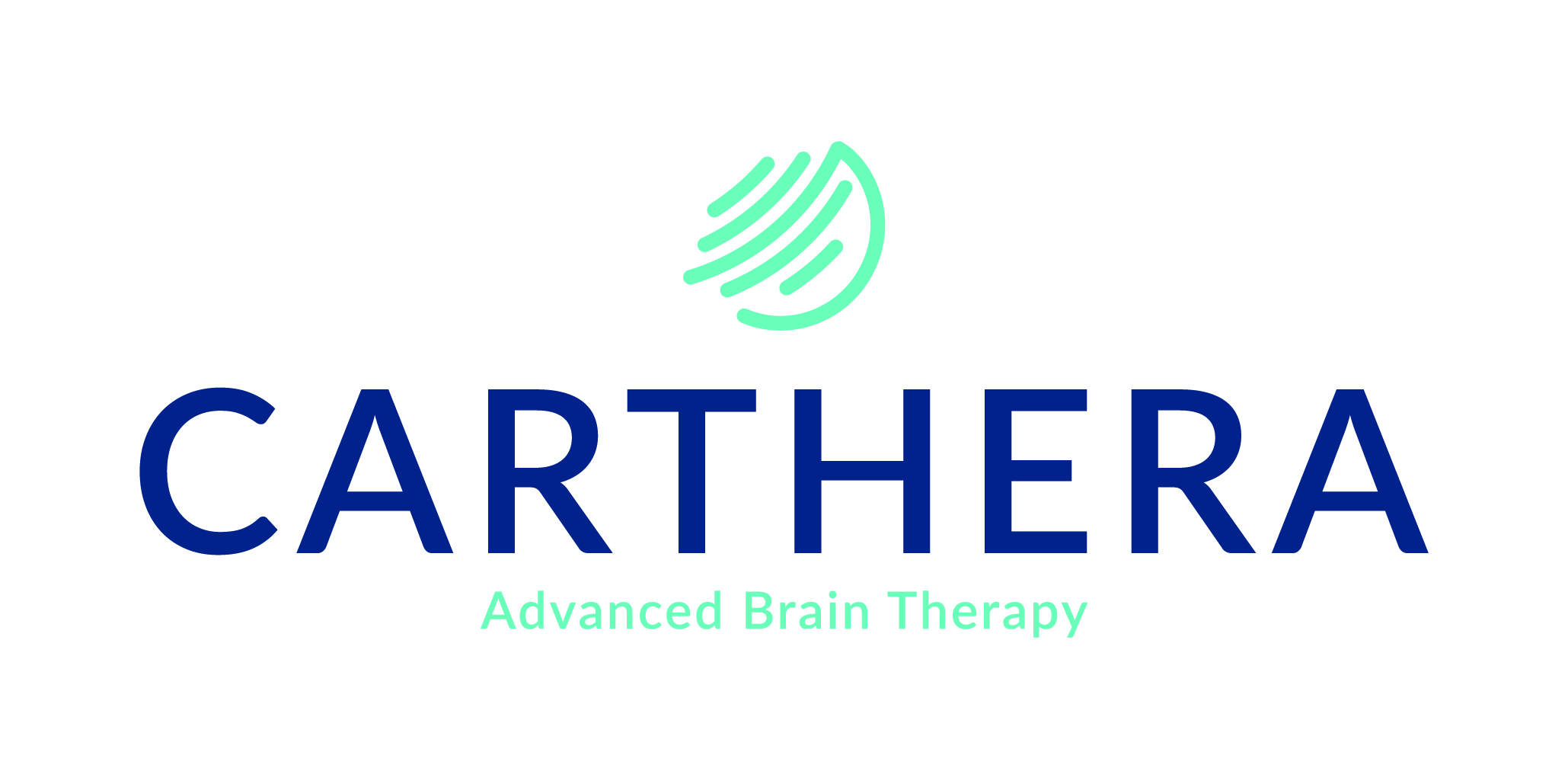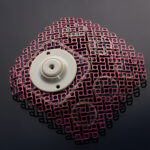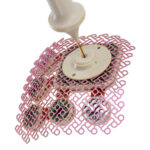Share this post:

Article published in world-leading clinical oncology journal describes results of first in-human clinical trial conducted at Northwestern University Feinberg School of Medicine
Four- to six-fold increase in drug concentrations measured in human brain after blood-brain barrier opening with SonoCloud-9 System
Paris, France, May 3, 2023 – Carthera, a French company that designs and develops SonoCloud, an innovative ultrasound-based medical device to treat a wide range of brain diseases, announces today the publication in Lancet Oncology of results from a phase I clinical trial carried out by scientists at Northwestern University Feinberg School of Medicine (Chicago, Illinois, US). They used the SonoCloud-9® implantable ultrasound device to repeatedly open the Blood-Brain Barrier (BBB) to deliver chemotherapy in patients with recurrent glioblastoma. The results show the treatment was safe and well-tolerated, with some patients receiving up to six cycles of treatment.
The BBB is a microscopic structure that shields the brain from the vast majority of circulating drugs. As a result, the repertoire of drugs that can be used to treat brain diseases is very limited. Patients with brain cancer cannot be treated with most drugs that are otherwise effective for cancer elsewhere in the body, as these do not cross the BBB.
This is the first study to successfully quantify the effect of ultrasound-based BBB opening on the concentrations of chemotherapy in the human brain. Opening the BBB led to an approximately four- to six-fold increase in drug concentrations in the human brain. The Northwestern team observed this increase with two different chemotherapy drugs, paclitaxel and carboplatin.
“This is potentially a huge advance for glioblastoma patients,” said lead investigator Dr. Adam Sonabend, an associate professor of neurological surgery at Northwestern University Feinberg School of Medicine and a Northwestern Medicine neurosurgeon.
“Temozolomide, the current chemotherapy used for glioblastoma, does cross the blood-brain barrier, but is a weak drug,” added Dr Sonabend. “In the past, studies that injected paclitaxel or carboplatin directly into the brain of patients with these tumors observed promising signs of efficacy, but the direct injection was associated with toxicity. In our study, the use of the SonoCloud-9 system has demonstrated promise for safe and tolerable delivery to patients.”
In this phase I clinical trial, patients underwent surgery for resection of their tumors and implantation of the SonoCloud-9 system; they then started treatment within a few weeks. Every three weeks, paclitaxel was delivered with accompanying ultrasound-based BBB opening. In subsets of patients, studies were performed during surgery to investigate the effect of the SonoCloud-9 system on drug concentrations. The BBB was visualized and mapped in the operating room using a fluorescent dye called fluorescein and by MRI obtained after ultrasound therapy.
In another first, the study reports that using Carthera’s novel skull-implantable grid of nine ultrasound emitters opens the BBB in a volume of brain that is nine times larger than the initial device (a small single-ultrasound emitter implant). This is important; to be effective, this approach requires coverage of a large region of the brain adjacent to the cavity that remains after the removal of glioblastoma tumors. This region is typically the location of the infiltrated tumor cells that lead to tumor recurrence after surgery.
“The findings from this study provide further evidence that our next generation SonoCloud-9 technology can be used to safely disrupt the BBB over a large volume and significantly enhance the levels of a wide range of therapeutics in the human brain,” said Michael Canney, chief scientific officer at Carthera.
The findings of the study, which demonstrate significant enhancement in brain drug concentrations, as well as those from a recently completed Phase 1/2 trial also in recurrent glioblastoma patients using the drug carboplatin (NCT03744026) are the basis for the phase 3 study that Carthera is initiating in 2023. The objective of the pivotal trial — in which participants will receive carboplatin delivered to the brain with the ultrasound technique — is to investigate whether the SonoCloud-9 can prolong survival in patients receiving this novel treatment versus the current standard of care.
“Results presented by scientists at Northwestern demonstrating significant enhancement in drug levels as well as the recent safety and efficacy observed in our Phase 1/2 trial with carboplatin (NCT03744026) support our plan to progress to a phase 3 clinical program evaluating the SonoCloud-9 system for the treatment of recurrent glioblastoma,” said Frederic Sottilini, CEO of Carthera. “This opens promising perspectives for patients fighting this devastating brain disease.”
About SonoCloud-9
The SonoCloud-9® device is implanted in a skull window, below the skin; once in place it is invisible. When activated for a few minutes, using a transdermal needle connection to an external control unit, the BBB is disrupted for several hours; a window during which drug therapies can be administered. When the BBB is disrupted, drugs can reach the brain in higher and more effective concentrations. This treatment can be repeated at each cycle of drug therapy.
The safety of the investigational use of SonoCloud-9 has not yet been determined, the device has not yet received EMA or FDA approval.
About Northwestern University Feinberg School of Medicine
Northwestern University (Illinois, US) is a leading research university that is home to more than 90 school-based centers and more than 50 University research centers. With an interdisciplinary culture, our research spans a spectrum of areas including neuroscience, nanotechnology, biotechnology and drug discovery.
Northwestern’s Feinberg School of Medicine is a top 20 medical school, where nationally recognized researchers collaborate with skilled clinicians to improve human health. Feinberg provides 70% of all research funds across Northwestern University, with approximately 6,093 clinical trials and research studies taking place in 2021-2022.
The collaborative medical school faculty conducts basic science, clinical and translational research on campuses in Chicago and Evanston.
About Carthera
Carthera is a clinical-stage medtech company focused on developing innovative ultrasound-based medical devices to treat a wide range of brain disorders.
The company is a spin-off from AP-HP Paris and Sorbonne University. Carthera leverages the inventions of Pr. Alexandre Carpentier, head neurosurgeon at AP-HP Sorbonne university, who has achieved worldwide recognition for his innovative developments in treating brain disorders. Carthera is developing SonoCloud®, an intracranial implant that temporarily opens the Blood-Brain Barrier (BBB). The device is currently in clinical trials in Europe and the United States.
Founded in 2010, Carthera has offices in France (Lyon and Paris) and a subsidiary in the United States. Since its inception, the technical and clinical development of SonoCloud has received support from the National Research Agency (ANR), the French public investment bank (Bpifrance), the National Institutes of Health (NIH) and the European Innovation Council (EIC).
To download documents, you can right-click on the links above and chose « Save link as… »




